News and Views

Making Christmas more sustainable and circular was the subject of CEC 3 Counties’ final online event of the year. CEC 3 Counties is the voluntary group of individuals, businesses and organisations who come together and try to promote circular economy ideas throughout Bedfordshire, Northamptonshire and Buckinghamshire. We took the opportunity during the festive period of hosting a Christmas quiz and networking event, inviting speakers to say a few words about their activities supporting circularity for businesses and households in our region. Lucy Bywater, who is a borough councillor for the Green Party representing Castle Ward in Bedford, and also chairs the Bedfordshire Climate Change Forum , spoke about some of the activities going on in Bedford. This includes the Bedford Repair Café run by amazing local volunteers who provide electrical repair, sewing, patching and general repairs. They weigh items that are brought into the café to show how much is saved from going to landfill or incineration in Bedford’s case. They are also helping save people money, as in many cases people simply don’t know how to repair or prolong the life of things they buy and use. As a councillor, Lucy is trying to work within the Council on an improved waste strategy, aiming to minimise how much waste is created in the first place, moving away from recycling with the uncertainty that surrounds how things are recycled. Lucy is trying to get the Council to form a partnership with Freegle , which was highlighted in a presentation from Natalie Ibbott later in the event. Freegle provides an amazing social benefit, as well as helping waste reduction said Lucy. Lucy is also passionately promoting the idea of opening a reuse shop at the local household waste centre in Bedford. Sadly, and tragically, you often see completely brand new, unused items thrown away, often items that are still in their original wrapping. She would also like to see smaller, local reuse and recycling deposit banks set up, to allow people who do not have easy access to transport to donate and reuse items. Elaine O’Leary spoke about the work of North Northants Sustainable Food Network which is a partnership of organisations from the food producing and hospitality sector, community and local authority groups. The partnership was formed due to the concern about access to affordable and healthy food in North Northamptonshire, and the amount of waste that is being generated. The network promotes various tools and the support available to households and businesses, including some of the food waste reducing apps that are now available. They also promote local food banks and food larders. Macey Mitchell of Eco Foundry spoke about the vertical gardens and living walls that the company provides. These are reusable, modular and portable, designed to reduce waste in the events sector. They use sustainable materials in the construction, and maintain plants and green walls. The CEC 3 Counties Circular Economy Map was highlighted as a useful source of information including repair shops, sustainable food cafes, reuse organisations and places you can go for advice and support in our region. Over 200 organisations are now listed on the map, which provides contact information and links to websites. We are keen to hear from anyone who would like to be listed on the map, and is active in circularity and sustainable living. The quiz portion of the event included questions covering a diverse range of topics including local household waste recycling rates (with Bucks CC the top of the league in our region), how many charity shops there are in the UK (11,200) and the percentage of consumer goods (just 1%) still in use 6 months after they are purchased. The answer to how much wrapping paper we use in the UK at Christmas is a staggering 227,000 miles worth!

Join us for a Christmas quiz and networking event, Wednesday 14th December, 12pm-1pm - a light-hearted way to meet fellow circular economy enthusiasts in our region. You'll learn how we can all act to make this Christmas more circular and sustainable in Bedfordshire, Buckinghamshire and Northamptonshire and be able to share your own circular economy and reuse ideas. The questions will be fun and light-hearted, but with a circularity message, so hopefully an enjoyable way to learn and share. All are welcome - individuals, organisations, charities, businesses and it's completely free to attend and online, so all from the comfort of your home, office or Christmas hideaway. Register for free here
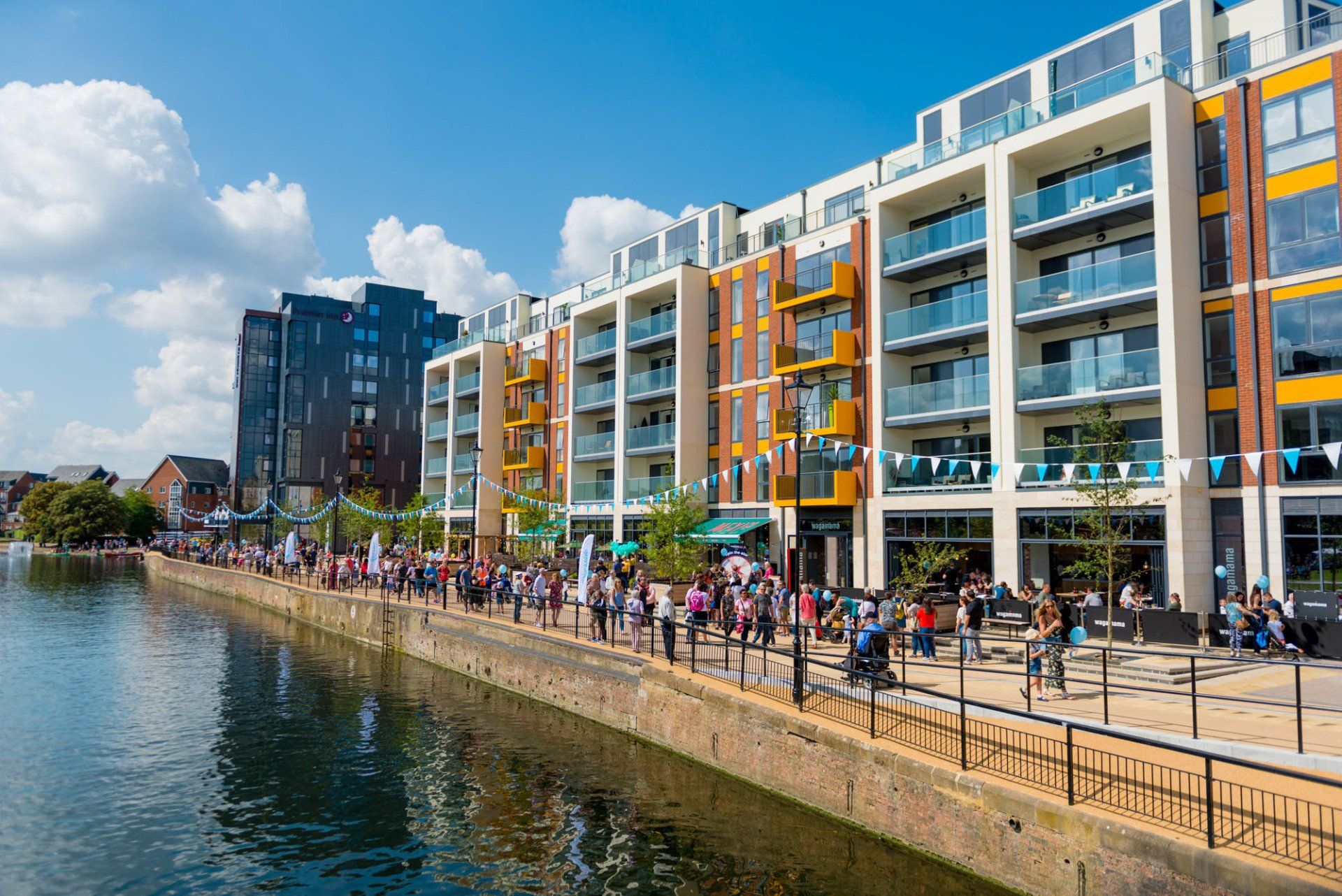
To mark Great Big Green Week Bedford this year, CEC 3 Counties hosted an online webinar ‘Circular Living for Bedfordshire’ designed to explore the ways in which businesses and individuals throughout Bedfordshire can adopt more ‘circular’ living. The Circular Economy Club network is the voluntary international network of over 4,500 circular economy professionals and organisations in over 140 countries. It is not-for-profit and open to anyone with an interest in circularity. Katherine Adams, one of the CEC 3 Counties co-ordinator, chaired and opened the session, and started by describing how circularity aims to keep our products and materials in-use using different methods and practices, including designing for longevity in the first place. A circular economy is one in which products are created to be long lasting, adaptable and reusable. It aims to combat our ‘throwaway society’, make best use of resources and cut carbon emissions. Jeremy Hobbs-Awoyemi introduced the newly created CEC 3 Counties circular economy map for Bedfordshire, Buckinghamshire and Northamptonshire. This lists zero waste shops, reuse and recycling organisations, and those involved in circularity throughout the region. Anyone offering reuse or ‘circularity’ can be added to the map, and you can contact CEC 3 Counties for this. John Kennedy, co-founder of Uzed.com , has worked in the circular IT hardware industry, buying and selling used equipment from companies, schools and other organisations. Whilst still working in IT, his main focus now is on making the gym industry more circular. John told the story of Uzed, where they came from, what they do and their circular ambitions for the future. The fitness industry has a long history of reluctance to use or buy second-hand equipment, with short term fashion tending to dominate, leading to huge amounts of wasted equipment and wasted revenue in the sector. Through Uzed that is starting to change. Uzed started life by understanding the fitness industry, finding out how equipment can be maintained and repaired, what is needed for equipment to be reconditioned and how can you source spare parts. Uzed will often take equipment that is destined to be thrown away, and completely break the unit down into its constituent parts, in that way building up a stockholding of parts. They now also look at spare part acquisition direct from the manufacturer. They are increasing the residual value of equipment. New equipment typically has a very high initial list price, with the secondary market typically low. They are working with leasing companies to provide a future value and higher value guarantee on equipment, which they provide as an option for fitness gyms.
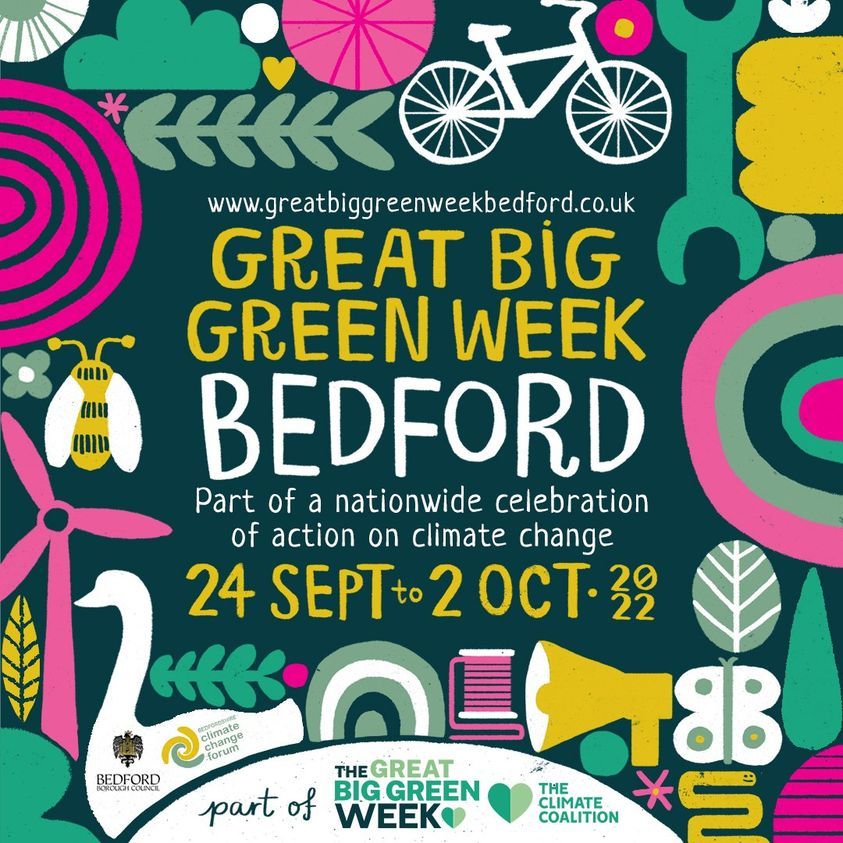
2021 saw the first Great Big Green Week across the UK and over 20 different events took place in Bedford to raise awareness and take action on climate change. In September 2022, the Great Big Green Week is returning, with an even bigger series of events and activities. CEC 3 Counties are taking part, hosting an online event on September 27 th to focus on circular living opportunities for businesses and individuals in the area. We will be highlighting examples of local businesses putting the circular economy at the centre of their operations, and ways in which individuals and households throughout Bedfordshire can do their bit to reduce waste and reuse more. You can find out more here about Great Big Green Week Bedford and you can sign up here for our free online event Circular Living for Bedfordshire .
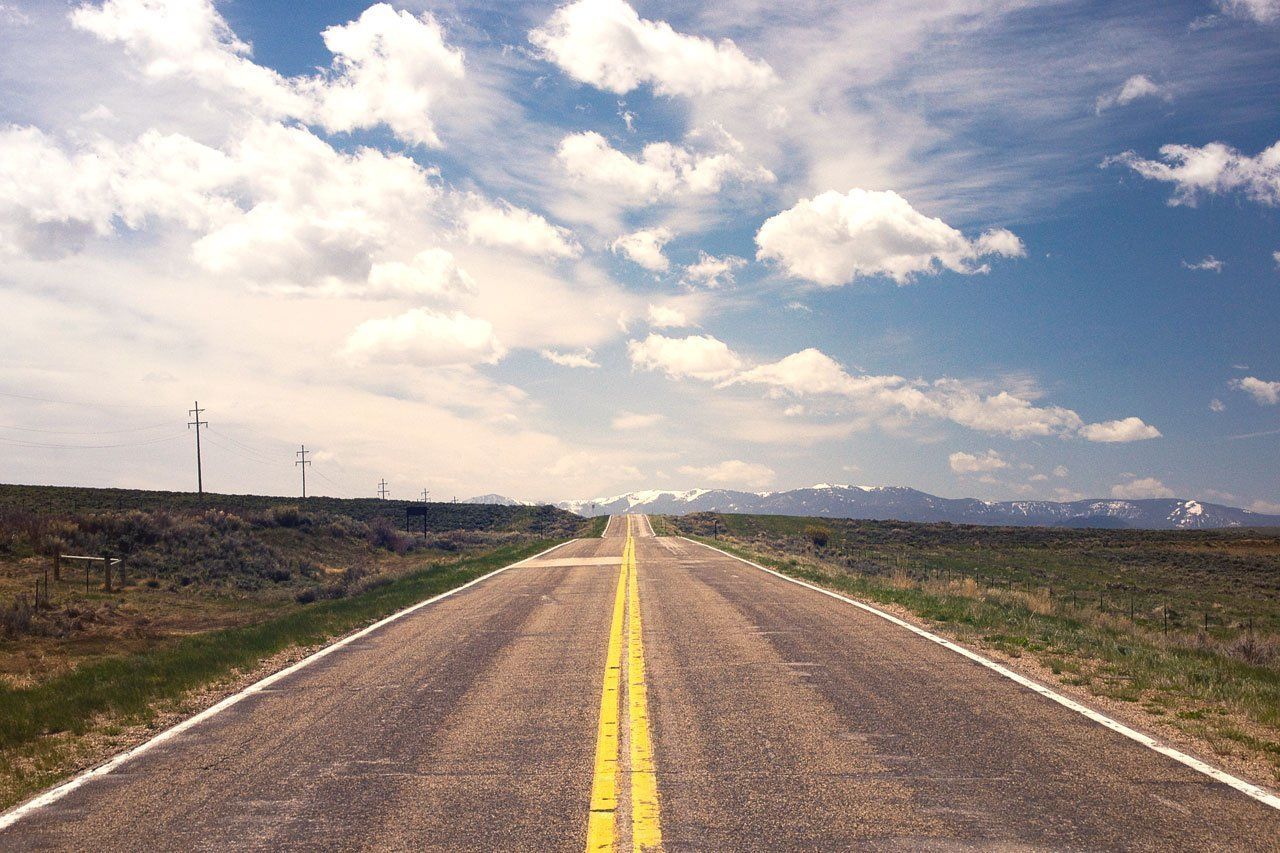
As record-breaking numbers of delegates gathered in Glasgow in November last year, they were also joined by huge crowds of protesters outside; but the UK presidency of COP26 had set itself the ambitious task of “keeping 1.5C alive”. Whilst some heralded the conference as a success, there were many questions left unanswered and many timescales left open. Natalie Ibbott of CEC 3 Counties reports. The “Glasgow Climate Pact” that emerged from the summit was welcomed by many for its commitment to doubling adaptation finance and requesting countries to present more ambitious climate pledges next year. The Pact “welcomes” the latest IPCC report and “expresses alarm and utmost concern” at warming having already reached 1.1C, with remaining carbon budgets now “small and being rapidly depleted” - current pledges, if met, will only limit global warming to about 2.4C. Some were disappointed that COP26 failed to provide vulnerable nations with the money to rebuild and respond to the unavoidable impact of climate change and that the new 2030 promises amounted to 0.3C less warming if met, falling well short of 1.5C. Previous pledges to provide these countries with $100bn (£72bn) a year by 2020 was missed and so the prospect of a trillion dollar a year fund from 2025 was welcomed by most. It was the first event COP decision to explicitly target action against fossil fuels, calling for a “phasedown of unabated coal” and “phase-out” of “inefficient” fossil-fuel subsidies. This was however, a weaker commitment than first proposed after a later intervention by China and India and no firm dates have been set. Young people from around the world also made their voices heard on “youth and public engagement” day on 5 November by presenting the COP presidency with a “global youth statement”, which was signed by more than 40,000 young people from more than 130 countries. Other COP26 highlights included: The world's biggest CO 2 emitters, the US and China, pledged to cooperate more over the next decade in areas including methane emissions and the switch to clean energy. Leaders from more than 100 countries - with about 85% of the world's forests - promised to stop deforestation by 2030 (it is, however, unclear how the pledge will be policed). A scheme to cut 30% of methane emissions by 2030 was agreed by more than 100 countries (although notably missing China, Russia and India) In an initiative to involve private companies in meeting net zero targets, financial organisations controlling $130tn also agreed to back "clean" technology, such as renewable energy, and direct finance away from fossil fuel-burning industries. Is this just a PR exercise or real action? We’ll have to wait and see. Whilst we may need to reserve judgement on the outcomes of COP26, at CEC 3 Counties we are determined to continue to spread the word in support of creating more circular economy opportunities in Bedfordshire, Buckinghamshire and Northamptonshire. We are keen to hear from any local businesses, charities, community groups and individuals involved in circularity across the region. In 2021 we ran a number of events – some virtual, some physical – covering food sustainability, furniture re-use and fashion, amongst other topics. We will be putting a programme together for more of this in 2022, so get in touch if you want to get involved. We are also looking to develop a zero waste map for the region and highlight best practice and solutions for businesses large and small.
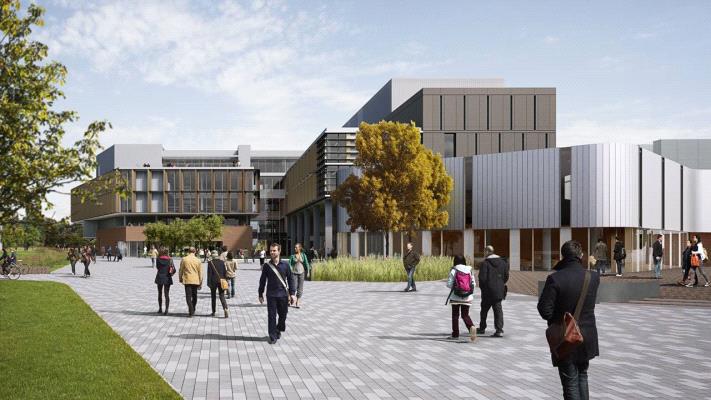
CEC 3 Counties teamed up with the University of Northampton to run a morning event during COP26 week to highlight the importance of circular economy solutions in helping to reduce climate emissions. This was a return to (socially distanced) face-to-face meeting, a rare opportunity to meet in person with organisations and individuals from across the region. Over 40 people attended, drawn from organisations, business and charities from Northamptonshire, Bedfordshire and Buckinghamshire. Our speakers included Margaret Bates of OPRL who opened the event and explained the importance of clear and effective labelling for packaging and related materials. OPRL is the leading, evidence-based recycling and reuse label in the UK, used by over 680 businesses across the packaging value chain. Their labelling rules and supporting tools are enabling circularity, ensuring packaging is designed, procured and labelled so that members of the public can recycle easily, and local authorities and waste management companies can sort and recycle materials for reuse. Margaret was then joined in a panel debate by Fiona Charnley, associate professor of circular economy at the University of Exeter, and Katherine Adams of CEC 3 Counties and Reusefully. There was a lively discussion, with contributions from the audience, on the need to heighten the awareness of the close link between circularity and reducing carbon, the need for greater awareness of the opportunities for circularity, some of the challenges and the good work going on locally, nationally and internationally to make progress. Robin Burgess of West Northants Sustainable Food Places outlined the vital importance of addressing the food system in reducing emissions, and the need for more sustainable food production and farming. A third of all food produced is wasted, and a third of all greenhouse gas emissions are food related – both startling and staggering statistics. Philip Mossop of Pentatonic provided a fascinating presentation of the company’s work in helping global brands including Burger King and Starbucks rethink their waste streams, and apply creative thinking to repurposing and redesigning consumer products such as children’s toys and reusable dining kits. Clare Topping, energy and sustainability manager at Northampton General Hospital, provided an equally fascinating insight into a number of initiatives to improving circularity in the health care system. The NHS is estimated to generate over 27 million tonnes of carbon on an annual basis, and is responsible for around 5% of all journeys made in the UK with patient and visitor travel. They consume as much water equivalent to that of a country of the size of Estonia. Clare is working on a number of programmes to design out waste in the system and improve the longevity of use of surgical and clinical supplies. In tandem with the event, we created a Circular Economy Design Challenge for students from the University. This invited students from to submit ideas under four themes: Future Fashion - considering the environmental impact of linear and fast fashion models Changing Hearts and Minds - communicating circular economy principles and benefits through advertising or social media Zero Waste – making use of waste as a resource or better still creating products that don’t become waste Circularity on the Go - making the best use of resources in ‘on the go’ scenarios such as events, hospitality and catering We were very impressed by the standard of submissions and the rich seam of work that is already being undertaken at the University in circularity and sustainability. The winner of the Challenge was Caroline Sani, a fashion student at the University. Originally from Kenya, Caroline’s project ‘Textiles for Fashion’ forms part of the University’s work on upcycling with the Salvation Army. In her childhood, Caroline witnessed examples of more careful and industrious use of precious resources amongst a much ‘poorer’ community, compared to more profligate, wasteful use of resources in the more ‘advanced’ world. Also commended were product design students Christopher Rogers, with a form of packaging that is constructed from a coffee-based, bio-plastic, and Beatriz Dantas, with Adapto’ a design piece intended to increase the longevity of fashion clothing and fight the culture of throwaway, fast fashion.
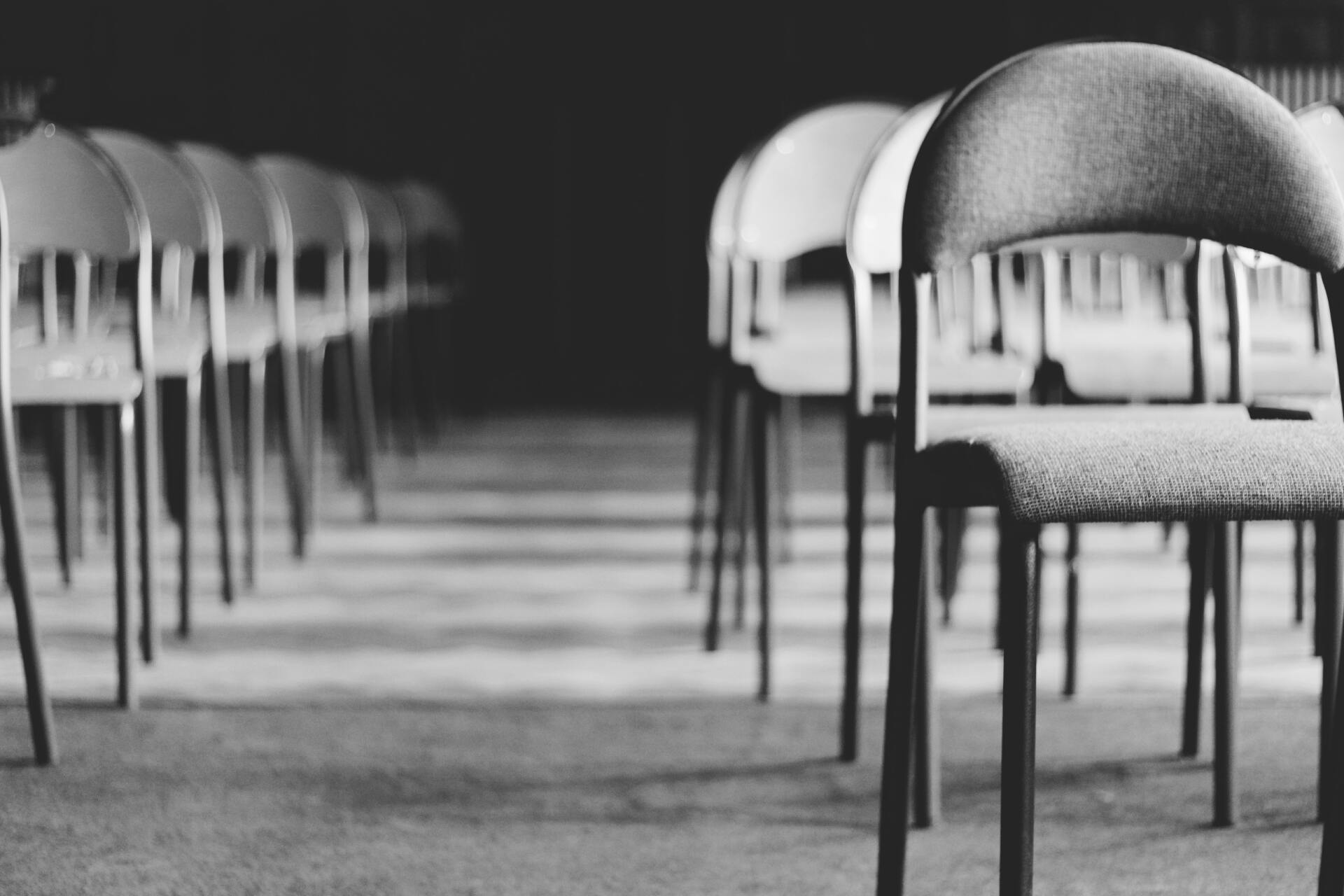
It is estimated that 270,000 tonnes of furniture is disposed of each year in the UK. Just 17% of sofas are reused, whilst almost half of all furniture that is disposed via household waste centres could be reused in some shape or form, either in its current condition, or with slight repairs. So how can we go about being more sustainable and ‘circular’ in the furniture we buy and use? This was the subject of the latest ‘Circular Economy Elevenses’ online event from Circular Economy Club (CEC) 3 Counties held on 22 nd June. CEC 3 Counties covers Bedfordshire, Buckinghamshire and Northamptonshire in the UK, and exists to promote circular economy practices throughout the region, connecting individuals, businesses and charitable organisations as we seek to be more ‘circular’. We heard from some excellent speakers and practitioners drawn from across the three counties. Katherine Adams of CEC 3 Counties opened the event, highlighting some of the barriers, perceived and real, to greater circularity in furniture, including the design of furniture products, the logistical difficulties of storing and moving reusable furniture, and our ‘throwaway’ consumer culture and buying behaviour. Cat Fletcher, co-founder of Freegle UK , introduced the UK’s biggest free sharing network which has been in existence for more than 12 years. Freegle aims to reduce waste in local communities. There are over 450 local Freegle groups, with 3.4 million members across the country. Freegle matches up who have a local need with people who have something to pass on or reuse. This not only promotes reuse but also has a huge social value, connecting communities and people especially during the challenging and difficult times experienced during the coronavirus pandemic. In the year to May 2021, Freegle helped share over 10,000 tonnes of material and equipment, with an economic value of nearly £8 million, and helping save 5,500 tonnes of carbon. Cat highlighted the ridiculously high level of furniture waste in the UK, items that are simply thrown away that could be reused. We also have the dreadful blight of fly tipping, with some London Boroughs spending more than £1 million a week on clearing up fly tipped items. Freegle can help reduce furniture poverty, it helps encourage upcycling and it reduces plastic packaging, as most shared items come without packaging. Freegle is available in the 3 Regions and across the UK. Tina Benfield, Technical Services Manager at CIWM (The Chartered Institution of Wastes Management) and Greg Lavery of Rype Office described the collaboration behind the recent office move and sustainable fit-out of CIWM’s headquarters in Brackmills, Northampton. CIWM’s ethos, is, of course around reuse and recycling and Tina described how they overcame some of the challenges to arranging a more resource efficient set-up for the office they moved to in Northampton. They partnered with Collecteco to reuse furniture that was no longer needed from the office space they were vacating. Over 300 large furniture items were reused, which created an in-kind fund saving over £40,000 of value for the organisations that benefited from the reuse. Greg described how furniture accounts for around 30% of the life cycle carbon footprint of a typical office. Rype place major emphasis on a more ‘circular’ approach, re-manufacturing and reusing existing furniture and sourcing sustainably produced new furniture where existing furniture cannot meet the requirement. Rype also provide a takeback scheme, which not only works for improving client relationships and service, but also can provide a financial benefit and opportunity. Greg provided a snapshot of the newly created office environment at CIWM, which includes recycled and repurposed furniture from other offices, and a boardroom table made from recycled plastic yoghurt pots, all in an attractive and engaging office environment. Sian Berkley of Ocee Design spoke about the company’s sustainability journey, which revolves around reducing their own carbon footprint, increasing the transparency of their supply chain and providing customers with more choice in sustainable furniture design. Ocee apply life cycle assessment thinking to all stages of their product, from product design and procurement through to manufacturing, supply and end-of-life. They design for disassembly, using recycled materials. They aim to provide customers with a better and more sustainable choice, and look for independent certification to back-up these choices. Ocee have recently launched a take-back scheme, placing a priority on reusing items they recover, often donating them to community groups, schools and charities. They monitor the carbon savings and financial value of this reuse. Ocee’s manufacturing facility is in Northampton. Tom Blight from Emmaus Village, Carlton , provided a presentation on their socially-inspired furniture reuse and upcycling activities. Emmaus is a charity that aims to support formerly homeless people (known as ‘companions’). They operate a large ‘pre-loved items’ store at their centre in Carlton, also provide local household collection and a service for nearby large retailers who wish to dispose of unwanted furniture stock. Emmaus run furniture upcycling workshops, whereby customers at the store can pick an item of furniture and learn upcycling skills, give the furniture item a new lease of life and take it home at the end of the session. So there are many opportunities to be more ‘circular’ in furniture reuse and recycling across the region, whether this be in an office setting, at home, in a school or elsewhere. The range of projects and case studies provided was inspirational, not just in reducing our carbon footprint and saving money, but also in the wider social value and community cohesion provided by reuse, recycling and upcycling. Furniture is something that is an intrinsic part of all our daily lives, but perhaps we can all do more to promote the circular economy activities at home and work.
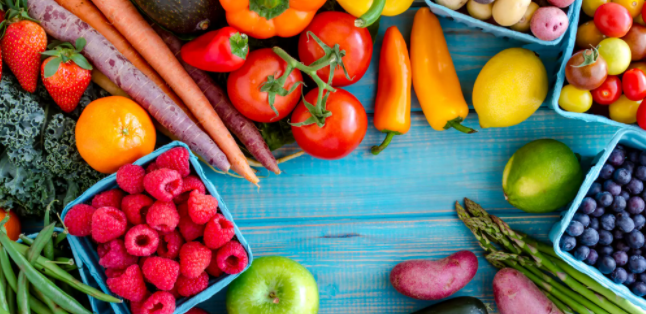
According to a recent report in The Guardian , over 1 billion tonnes of food is wasted around the world on an annual basis. This equates to 10% of global carbon emissions, and if food waste were a country it would be the 3rd highest emitter after the US and China. In the UK, food waste represents 8 edible meals per week, per household, a quite shocking statistic given that around 14 million people are classed as food poor. Food waste, and creating a more circular, equitable and sustainable food system, was the subject of a recent webinar from CEC 3 Counties. The event attracted participation from individuals, businesses and charities throughout Bedfordshire, Buckinghamshire and Northamptonshire. We heard from Tessa Tricks, who described the community fridge network established by environmental charity Hubbub. Hubbub aims to inspire ways of living that are good for the environment, tapping into issues that are relevant to people’s daily lives, covering the food we eat, the clothes we buy and wear and the homes and neighbourhoods we live. The aim is to encourage people to do the right thing and make it easy, aspirational and fun. Hubbub first became interested in food waste in 2016, as part of a project they were running with Sainsbury’s. They discovered that the average UK household could save up to £720 per year by avoiding food waste. Within the 3 Counties region, Wolverton was one of the sites of the first community fridges introduced into the UK. As well as reducing waste, community fridges are also designed to foster a sense of sharing in the local community. Individuals and businesses donate food that is within its use by date, and each fridge is managed by a team of volunteers. Hubbub have produced a ‘How To’ guide to help the roll-out and expansion of the network across the UK. Many fridges now have cooking workshops and other community initiatives attached to them. Robin Burgess described the move to make West Northamptonshire a ‘sustainable food place’. Robin is CEO of the Hope Centre in Northampton, a charity and social enterprise, dealing in poverty and homelessness. Robin described the lack of awareness about food and food growing, and the terrible impact of food poverty both in the UK, and closer to home throughout Northamptonshire. In the sustainable food place network, the solution is to look at how organisations can collaborate under six themes of collaborative food governance and action, building public awareness, tackling food poverty, creating a diverse and sustainable food economy, transforming local supply chains and tackling climate change. Robin and team are currently mapping local activity and creating a food charter. Rosanna Heasman spoke about the zero waste shop in Bedford, The Store, a refill shop where customers can buy food and other goods without packaging. The aim is to encourage people to reduce waste from every aspect. Rosanna sources the supply of items from sustainable local co-operatives and wholesalers and part of the goal of the store is to create increased community spirit and awareness, educating people to buy only the amount of food that they actually need. The Store also provides local Bedfordshire cookbooks and hosts cook-a-longs that are free to participate it, which amongst other things shows people how to use up leftovers. Andrew Jenkins from Buckinghamshire Council introduced the zero waste map for Buckinghamshire. This is a simple idea and a way for residents to find services to help them towards zero waste. The map signposts repair shops, recycling facilities and shops selling sustainable food and other produce such as plastic free cosmetics. The map helps to celebrate and promote local sustainable businesses and charities, based on straightforward Google software and mapping. Andrew and team are always looking out for new businesses to add to the map, and in the future are looking to develop the map to give a highlight to different types of businesses at different times of the year, and work with the residents of Buckinghamshire to understand what they would like to see in the site. The final speaker was Rebecca Nutley of Feedback Global. Feedback is a national charity with Rebecca based in Buckinghamshire. She is looking to increase people’s awareness of reducing food waste at local level which includes schemes for collecting allotment surpluses for foodbanks and community fridges, school projects and urban harvest schemes. Rebecca is also working to set up a Buckinghamshire Food Partnership and will also be submitting a ‘sustainable food place’ application, similar to the one discussed for West Northamptonshire. This will instigate food action groups to address food waste priorities in Buckinghamshire. She also works with Sustain, looking after the food growing network for Buckinghamshire. This is promoting the ‘good to grow’ scheme which includes a map of local allotments and community orchards, highlighting opportunities for residents and looking at partnering landowners with community groups for more sustainable growing opportunities. Food waste is a major and challenging issue in Bedfordshire, Buckinghamshire and Northamptonshire however there is a lot going on locally to address the issue, whether these initiatives are driven by food poverty, reducing waste or carbon footprint. We all have a responsibility as consumers and residents to do more, and also to spread the word in our local communities and support the good work of the organisations represented in the seminar. The great message from all of the speakers was that we can all make a start, do our bit in a small way, and there are a growing number of businesses and charities that we can support to create a more sustainable and less broken food system. The body content of your post goes here. To edit this text, click on it and delete this default text and start typing your own or paste your own from a different source.
